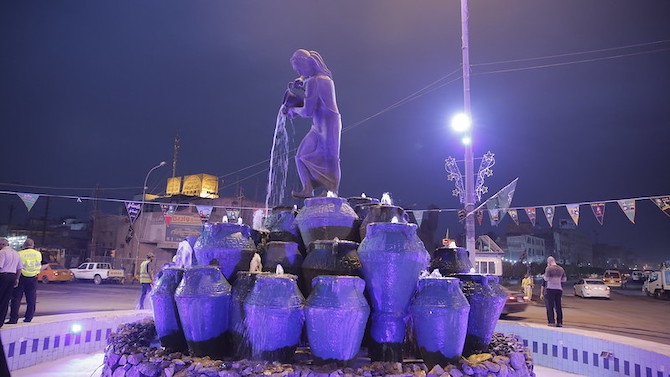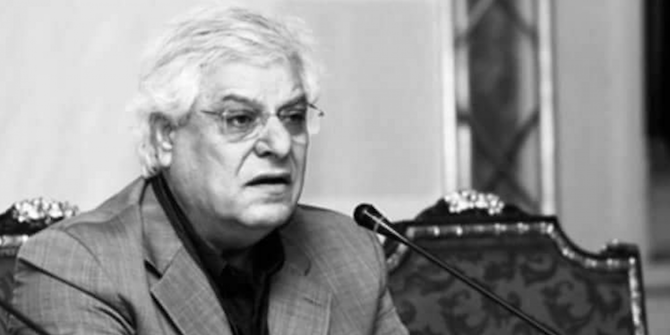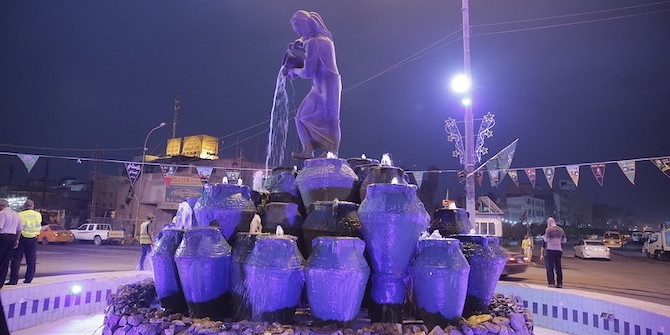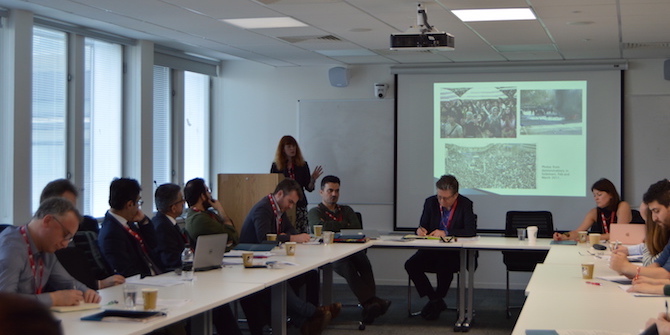by Ahmed Tabaqchali

The disclosure on 15 October 2022 of the embezzlement of 3.7 trillion Iraqi dinars (IQD), about US$2.5 billion, from the General Commission of Taxes (GCT) brought the stinging resignation letter of the outgoing finance minister into sharp focus – in particular, the charge that ‘vast underground networks of senior officials, corrupt businessmen and politicians operate in the shadows to dominate entire sectors of the economy, and siphon off literally billions of dollars from the public purse.’
The disclosure was greeted by cries demanding a thorough investigation, and for imposing punitive measures on the perpetrators and the corrupt officials who facilitated it.
Righteous indignation notwithstanding, severe punishments and new measures to root out corruption are doomed to fail, as were all prior anti-corruption measures, because the root causes are inherent in the post-2003 political order’s politically sanctioned corruption; and the inevitable politicisation of the senior civil service, which have hollowed out the state and its institutional capacity to function.
In particular, the Ministry of Finance (MoF), is structurally weak and ill-equipped to deal with the complexities of managing the state’s budget. Specifically, the absence of coherent revenue and expenditure management policies and systems, i.e., a Public Financial Management (PFM) system, combined with the prevalence of decades old paper-based systems, makes it impossible for the government to monitor its finances, in particular its cash management operations.
Now You See Me, Now You Don’t
The audacity of the embezzlement is matched only by the ease and impunity with which it was carried out.
The funds were taken from a GCT trust account held on behalf of tax payers with Rafidain Bank, which receives deposits from companies that deal with the state as a guarantee for the fulfilment of their contractual obligations. Companies can reclaim the deposits, after an audit and the settlement of their contractual obligations, including taxes. However, due to the complexity of the procedures, and to avoid paying full taxes, many companies don’t reclaim their deposits, which after five years become the state’s property.
Between September 2021 and August 2022, 247 cheques totalling IQD 3.7 trillion were made to five companies, which withdrew the funds in cash as soon as they were deposited into their accounts. These companies did not make any deposits into the trust account, had no authorisations from the companies that made deposits, and at least three of them were formed in the summer of 2021. Nevertheless, the financial report of the GCT’s accounting department, as of 9 October 2022, stated that the balances of the trust account totalled IQD 3.5 trillion, whereas the actual account balances were IQD 0.1 trillion. Moreover, these payments were not recorded in the books, and were in violation of the minister of finance’s November 2021 instructions that no payments should be processed without following procedures and his explicit approval.
The Sad State of the Ministry of Finance
Lacking a sound PFM, the MoF operates without an Integrated Financial Management Information System (IFMIS) which electronically links budget planning, budget execution, accounting and reporting of all government entities; exacerbated by the absence of a Treasury Single Account (TSA), which consolidates all the government’s accounts in a single account controlled by the MoF. As such the MoF has a tenuous control over government entities’ expenditures, and only a partial knowledge of its cash balances.
An IFMIS and a TSA, or even ‘bridging solutions’ till they are fully operational, would have made it extremely difficult to facilitate such an embezzlement, as the two would create an extensive and transparent paper-trail of all transactions. Effectively, under a TSA the cash balances of the trust account would have returned to the management of the MoF and not GCT; and the processing of deposits’ release – from application to audit to final payment – would be through a well-established protocol under IFMIS – which would come with an ‘ex ante’ electronic control of every expenditure transaction.
The White Paper and Resistance from Within
Two key aspects of the ‘White Paper for Economic Reform’, were to address the MoF’s structural weaknesses through the introduction of a PFM system, by reviving the long-stalled implementation of an IFMIS and a TSA; and to restructure state-owned banks Rafidain and Rasheed. While this has moved both projects from their multi-year aspirational phases to the realms of the possible, the system valiantly resisted – more passively than aggressively in the face of a strong push from the leadership of the MoF from May 2020 until October 2022.
Technical challenges and capacity limitations are significant obstacles to the implementation of IFMIS and TSA; while Rafidain Bank’s deep structural weaknesses present a major obstacle to its restructuring and to the roll-out of a modern core banking system – vital for TSA’s smooth functioning. While these obstacles are difficult to overcome in the short period since the White Paper, nevertheless they were the impetus for the system’s push-back.
Without these implementations, starting with bridging solutions, no amount of procedure tightening for the release of funds from the trust account, or adding external auditors, would realistically prevent future occurrences of other acts of embezzlement from the trust account or other government accounts.
A Feature and Not a Bug
Consequently, each government entity continues to have nearly full autonomy over its expenditures and bank accounts, making central accountability and effective governance a pipe dream. As such – whether by design or a happy coincidence – this state of affairs maintains the substantiveness of ministerial appointments within the Muhasasa Ta’ifia structure, and within its Wikala sub-structure for the appointments of senior civil servants.
The persistence of Muhasasa, with the appointment of a new president and the nomination of PM designate, maintains the status quo; which for the MoF means that the implementations of IFMIS and TSA, as well the restructuring of Rafidain Bank, are again purely aspirational.
Consequently, corruption with impunity will continue to be the norm and not the exception.
Note: The author reviewed the consequences of a lack of a TSA in ‘The Accounts that Didn’t Bark: Iraq’s Hidden State Balances’, and the lack of an IFMIS in ‘Gone with the Muhasasa: Iraq’s Static Budget Process, and the Loss of Financial Control’.







The muhasasa system in Iraq is no longer ta’ifiya in the broad sense. It has boiled down and concentrated into individual party muhasasa, and lately even into family muhasasa.
very very nice and great article thanks